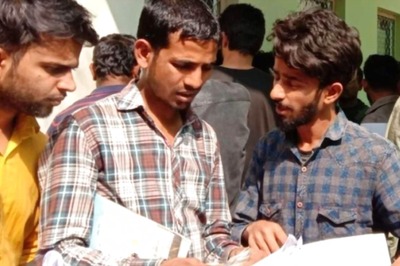
views
India has been undergoing a severe menace due to mosquito-borne diseases, and it is not hidden anymore. The increasing numbers of vector-borne diseases, especially, dengue, malaria, zika and chikungunya have been a concern all throughout the country. Recently, a research published in the medical journal Lancet has ranked India at the fourth number, in the ranking of global incidence of malaria in 2017.
According to the report, the country was affected with at least 10 million of the 219 million malaria cases that were reported worldwide. However, along with such a high number of cases, what constitutes a major concern for Indians is the mention of Chennai by the public health experts. The south-Indian city was mentioned as “a peculiar case” by the authors of the study, mentioning that nearly 71% of the cases in Tamil Nadu were from Chennai alone.
This has caused worry among the city folks. Former city health officer Dr P Kuganandam, who is the chairman of the Indian Public Health foundation, has opened up about the previous efforts undertaken in the city to keep the diseases causing mosquitoes at the bay. When Dr Kuganandam was asked if the city is a hot bed for malaria, he revealed to Times of India, “Chennai, for various reasons has always been the epicentre for the vector-borne disease in Tamil Nadu.”
Listing out the reasons behind it, he added, “First, the city is unplanned. Then we have more than 3 lakh houses with open overheard tanks and more than one lakh wells. These are breeding grounds for the malarial mosquitoes. These mosquitoes prefer clean water to breed. Sadly, more than 30% of the open overhead tanks are in government buildings. Unless we close them all we will not be able to bring eliminate malaria.”
The increase in the number of mosquito-borne diseases always remains as a concern. However, Dr Kuganandam believes that there has been a decline in malaria cases in TN and Chennai already. He briefed, “That is mostly because there is a population shift in mosquitoes. From being one of the most commonly found mosquitoes, Anopheles, is now replaced by the dengue-causing Aedes. The improvements in socio-economic and environmental factors have also played a large role in bringing down numbers.”
However, he did not decline that out of the total number of cases in the state, Chennai contributes a substantial number.
Talking about the efforts made in the city to curb the number of malaria cases, Dr Kuganandam said, “For several decades, Chennai’s landscapes have been a habitat for vectors with water storage containers, wells, gutters, and construction sites. While corporation officials pour anti-larval solutions into the water, there is a desperate need to improve strategies and interventions. In 2009, the city was divided into sectors and one health worker was appointed to visit every 500 houses. We need to hermetically seal or scientifically close wells and tanks. Buildings should be designed in such way that there is no water stagnation. If we improve water supply, there will be lesser need for rooftop storage.”




















Comments
0 comment